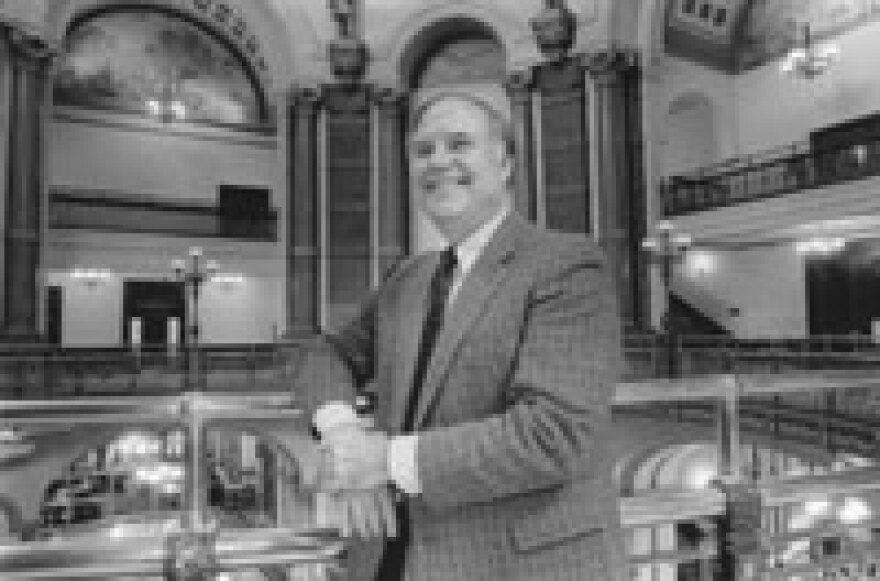Health care is an essential safeguard of human life and dignity, and there is an obligation for society to ensure that every person be able to realize this right. ... Universal coverage is not a vague promise or a rhetorical preamble to legislation, but requires practical means and sufficient investment to permit everyone to obtain decent health care on a regular basis. Cardinal Joseph Bernardin October 1995 pastoral letter
A little more than a decade after Cardinal Bernardin's death, the Illinois General Assembly and Gov. Rod Blagojevich have the opportunity to realize the late Chicagoan's vision for universal health care coverage — if they have the political will to do the job.
The opportunity to enact universal health care comes in the form of a comprehensive package being readied for introduction when the 95th General Assembly convenes this month.
Crafted by a health care task force appointed under a 2004 law, the package seeks to provide health insurance coverage to some 1.5 million of the state's more than 1.7 million uninsured, through a combination of expanded public programs such as Medicaid and mandates for employers to offer and for individuals to buy health insurance.
The challenge for state policymakers is coming up with the estimated $3.6 billion the proposal would cost the state, in addition to an estimated $1.5 billion in added costs for employers.
Despite its eye-goggling price tag, the plan does not advocate anything radical, such as having the state run its own health insurance program, similar to the so-called single-payer system found in Canada. Instead, the task force built upon the public-private system now in place. Its key provisions would:
• Expand the existing Medicaid program to cover additional low-income parents, very low-income childless adults and specific disabled populations.
• Oblige all Illinois residents to have health insurance coverage — either through their employer or purchased privately — or pay a penalty, yet to be determined. State-funded premium subsidies would be provided for persons earning less than $39,200 for an individual or $80,000 for a family of four, which are current incomes to meet the standard of four times the federal poverty level.
• Mandate most employers either to provide health insurance coverage for their workers, or pay a per-worker assessment, yet to be determined, that would be used to help cover the cost of the premium subsidies.
• Require health insurers to offer, on a guaranteed-issue basis, a comprehensive, standard benefit plan to individuals and small groups. Premium rates would be regulated more closely and annual increases limited.
• Pledge the state to pay providers under public programs such as Medicaid 100 percent of costs, as an incentive to increase health care access for low-income families.
• Create a new state agency to act as an enrollment broker and information clearinghouse on health insurance matters.
The initial response from the governor and legislative leaders when the task force adopted the plan last month was hardly enthusiastic. Polite interest would be a better description, no doubt because of the proposal's total cost of some $5 billion.
But the bottom-line shock could be softened, further analysis suggests. For example, the costs of expanding Medicaid likely would be shared by the federal government on a 50-50 basis. Employers could deduct the cost of insuring workers from their federal and state taxable income. Similarly, individuals could pay health insurance premiums with so-called pre-tax dollars, thus lowering their federal and state income tax liabilities. Even an increase in state income taxes would be partially offset for many taxpayers by a higher deduction on their federal taxes.
Moreover, providing universal coverage might reduce the overall health care bill, some studies suggest. Folks without insurance don't go entirely without health care, but they're less likely to get routine or preventive care, such as annual checkups, or to visit a doctor at the first sign of illness. Instead, relatively manageable conditions become serious and ultimately result in crisis treatment in the most expensive setting of all, a hospital emergency room. Part of the cost of providing such charity care is shifted to insured or self-paying patients, adding as much as $1,000 to a family's insurance premiums, according to some estimates.
The problem is not Illinois' alone, of course. Nationally, the number of uninsured has grown steadily in recent years, to some 46.6 million in 2005, according to the U.S. Census Bureau. Most are so-called working poor, people in jobs that do not provide health insurance as a benefit, or that do not pay enough to allow workers to afford the company plan or to buy private coverage, and still meet the needs of daily living such as food, clothing and shelter. Indeed, the number of employers offering health insurance continues to decline, while the costs to workers, including co-pays and deductibles, keep rising, according to the Census data.
Ideally, the federal government should act so that the United States could join the rest of the Western, industrialized world in providing universal access to health care. Given Washington's failure, advocates in Illinois began to push for universal coverage soon after Bernardin's death in November 1996, ultimately leading to passage of the 2004 Health Care Justice Act, which created the task force to recommend a plan to lawmakers.
The task force has done its work. Now the state's political leaders face the challenge Cardinal Bernardin set out a dozen years ago: Guarantee health care — a basic human right — to all Illinoisans.
The challenge for state policymakers is coming up with the estimated $3.6 billion the proposal would cost the state, in addition to an estimated $1.5 billion in added costs for employers.
Charles N. Wheeler III is director of the Public Affairs Reporting program at the University of Illinois at Springfield.
Illinois Issues, January 2007






